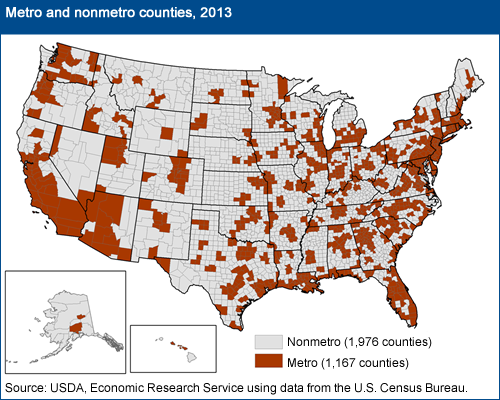CTCL Announces COVID-19 Response Rural Grant Program
To date, Congress has distributed $400 million dollars to states in an effort to support state and local election officials this year. Unfortunately, experts believe that it would take about $4 billion to successfully administer safe elections in 2020.
With this in mind, the Center for Tech and Civic Life (CTCL) recently provided five Wisconsin cities a total of $6.3 million for implementing a safe, inclusive, and secure election in November. Recognizing the need for safe voting options in jurisdictions of all sizes across the country, CTCL is now announcing the development of a COVID-19 Response Rural Grant Program.
While rural is not easy to define, CTCL will generally be following the “Metro vs Nonmetro” classification system. As outlined by the United States Department of Agriculture, nonmetro counties include some combination of open countryside, rural towns (fewer than 2,500 people), and urban areas ranging from 2,500 to 49,000 that are not part of larger metro areas. Grants will be open to local election offices in qualifying jurisdictions, whether at the county or municipal level.

Image source: https://www.ers.usda.gov/topics/rural-economy-population/rural-classifications/
COVID-19 has added another challenge to the already full plate of local election officials this year. In addition to this new facet, many jurisdictions face the added need of communicating rapidly changing policy information or providing information in multiple languages.
These new grants will prioritize rural jurisdictions that also fall into one of two categories. One priority will be jurisdictions that are required to provide language assistance under section 203 of the Voting Rights Act and have a higher percentage of historically disenfranchised residents. The other priority will be jurisdictions in states that have recently changed absentee voting laws or rules in response to COVID-19.
“The COVID-19 Response Rural Grant Program is an extension of CTCL’s history of work with rural jurisdictions across the country. Smaller, rural jurisdictions are often overlooked in the national election landscape and in the media, but remain crucial to our democracy,” said Tiana Epps-Johnson, Executive Director of the Center for Tech and Civic Life. “Like their metropolitan counterparts, rural jurisdictions are facing the unprecedented challenge of administering safe and secure elections and must provide healthy voting options to their communities this year,” she continued.

Tiana Epps-Johnson coaching Marie Hill on election website best practices. Mercer County, WV. 2014.
Similar to the Wisconsin Safe Voting Plans grants announced in July, the COVID-19 Response Rural Grant Program will provide funds for four mains purposes. They include, but are not limited to:
Ensure Safe, Efficient Election Day Administration
- Maintain open polling places for in-person voting on Election Day
- Procure Personal Protective Equipment (PPE) and personal disinfectant to protect election officials and voters from COVID-19
- Support and expand drive-thru voting, including purchase of additional signage, tents, traffic control, walkie-talkies, and safety measures
Expand Voter Education & Outreach Efforts
- Publish reminders for voters to verify and update their address, or other voter registration information, prior to the election
- Educate voters on safe voting policies and procedures
Launch Poll Worker Recruitment, Training & Safety Efforts
- Recruit and hire a sufficient number of poll workers and inspectors to ensure polling places are properly staffed, utilizing hazard pay where required
- Provide voting facilities with funds to compensate for increased site cleaning and sanitization costs
- Deliver updated training for current and new poll workers administering elections in the midst of pandemic
Support Early In-Person Voting and Vote by Mail
- Expand or maintain the number of in-person early voting sites
- Deploy additional staff and/or technology improvements to expedite and improve absentee ballot processing
Stay tuned to learn more about the grants, recipients, and how the funds have been utilized by local election officials. Interested in learning more about the application process? Visit https://www.techandciviclife.org/grants.